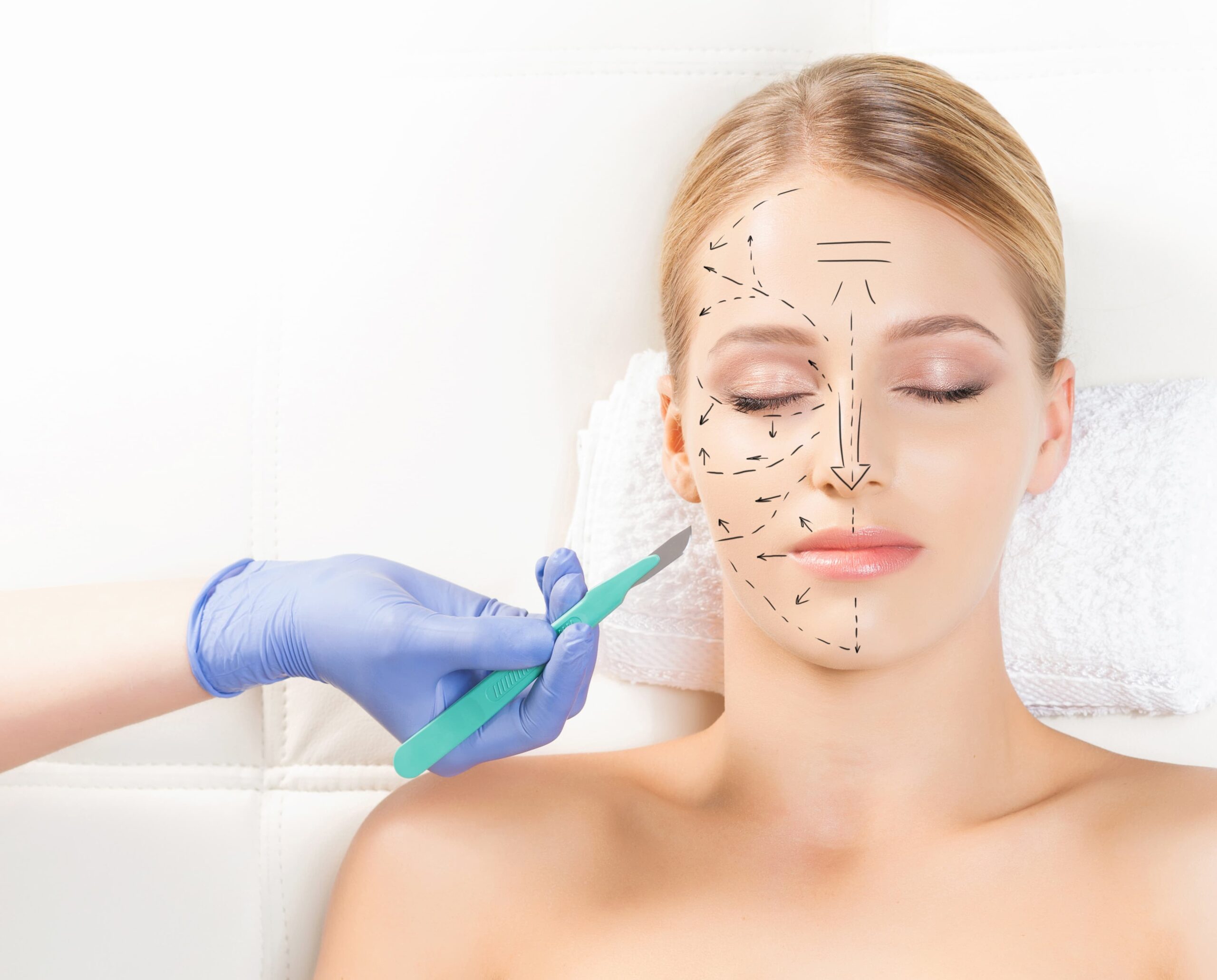Facelift Rancho Cucamonga: Reverse the Clock with Advanced Anti-Aging Solutions
Facelift Rancho Cucamonga: Reverse the Clock with Advanced Anti-Aging Solutions
Blog Article
Exploring the Emotional and Social Aspects That Drive Individuals to Consider Plastic Surgery as a Means of Improvement
The decision to seek cosmetic surgical treatment frequently expands beyond simple visual appeals, linking with social and emotional dynamics that warrant thorough exam. Variables such as self-esteem, pervasive social charm criteria, and the prevalent influence of social media sites assemble to shape private motivations for surgical enhancement. As these impacts come to be significantly prominent, comprehending the underlying psychological and social contexts is necessary. What remains to be checked out is the profound effect these elements have not just on individual identification but additionally on wider societal standards and worths bordering charm and acceptance.
The Function of Self-worth
Self-esteem substantially influences a person's choice to go after plastic surgery. People with low self-confidence frequently perceive themselves in an unfavorable light, causing feelings of insufficiency regarding their physical look. This negative self-perception can drive them to look for surgical interventions as a method of enhancing their self-image. The need for enhancement in one's appearance is often linked to a belief that such changes will certainly raise their general self-worth and self-confidence.

Ultimately, the function of self-worth in the decision-making procedure pertaining to cosmetic surgical procedure highlights the complex interaction in between body picture, personal satisfaction, and mental wellness. Understanding this partnership is crucial for healthcare professionals to make certain that individuals are making informed decisions rooted in reasonable expectations and emotional well-being.
Societal Appeal Requirements
Influenced by pervasive media portrayals and cultural stories, social beauty requirements play a critical duty in forming people' understandings of their own bodies. These standards are usually identified by an idealized form of elegance that emphasizes characteristics such as balance, youthful vigor, and slimness. As these suitables are bolstered with numerous channels, including advertising and marketing, movie, and tv, individuals often internalize these messages, causing discontentment with their all-natural look.
The ramifications of these social norms prolong past visual preferences; they can influence self-worth, mental wellness, and social connections. People that perceive themselves as disappointing these standards might experience sensations of insufficiency, prompting a need for cosmetic surgery as a way of achieving social authorization. This quest is often fueled by the idea that adapting these ideals will boost not only physical appearance but additionally social standing and personal gratification.

Influence of Social Media
The effect of social appeal standards is more enhanced by the rise of social media sites platforms, where curated pictures and idyllic depictions of beauty are ubiquitous. Individuals are continuously exposed to filtered and edited photos, which often depict unattainable physical features. This direct exposure grows a culture of contrast, leading people to evaluate their very own appearance versus these commonly unrealistic standards.
Social media influencers and celebrities regularly promote aesthetic procedures, stabilizing the idea that surgical improvements are a practical ways for attaining social suitables (plastic surgery rancho cucamonga). The visibility of these improvements can develop an assumption that going through cosmetic surgery is a basic method, therefore affecting individuals to consider comparable treatments as a pathway to enhanced self-esteem and social approval
In addition, the interactive nature of social media sites permits immediate responses via sort and comments, additionally reinforcing the need to adhere to prominent appeal criteria. Such communications can aggravate sensations of insufficiency and drive people towards cosmetic surgical treatment as a way of gaining validation. Ultimately, social media plays a pivotal duty fit assumptions of appeal, which dramatically affects the decision-making processes surrounding plastic surgery.

Social Point Of Views on Appearance
Across different societies, assumptions of look are deeply rooted in historic, social, and economic contexts, forming individuals' sights on elegance and worth. In lots of cultures, look acts as a significant pen of identity, affecting social standing, expert possibilities, and personal partnerships. For instance, in some societies, light skin is typically related to wide range and opportunity, while others may glorify darker complexion as signs of strength and credibility.
Furthermore, conventional charm standards are usually continued with cultural stories, media representations, and household influences, leading to differing ideals throughout various areas (plastic surgery rancho cucamonga). In Western societies, the focus on youth and physical fitness typically drives individuals towards cosmetic enhancement, while in certain Eastern societies, more subtle adjustments aligned with traditional visual appeals might be liked
Globalization and the expansion of digital media have actually further complicated these dynamics, creating a hybridization of elegance perfects that transcends geographical limits. As individuals increasingly browse these cultural narratives, the pressure to adhere to specific appearance criteria can bring about go to my site the need for plastic surgery, reflecting a complicated interaction of cultural worths and individual aspirations. Recognizing these social point of views is essential in attending to the inspirations behind plastic surgery factors to consider.
Psychological Effects of Aesthetic Surgical Procedure
Lots of individuals seeking plastic surgery record experiencing extensive psychological impacts that can considerably alter their self-perception and emotional well-being - plastic surgery rancho cucamonga. The need for physical improvement often comes from underlying problems such as low self-confidence, body dysmorphic condition, or societal pressures relating to charm standards. For some, the instant post-operative stage can cause a momentary increase in self-confidence and contentment with right here their appearance, cultivating a feeling of empowerment
Nevertheless, these favorable sensations may not be withstanding. Research indicates that while some clients experience improved self-worth, others may face increased anxiety or clinical depression if their expectations are not met. This discrepancy can arise from impractical suitables perpetuated by media depiction and social narratives bordering appeal.
Additionally, the mental implications of cosmetic surgical procedure prolong beyond the person. Relationships with family members and pals may be stressed as social characteristics shift, causing feelings of isolation or alienation. Ultimately, the psychological effects of cosmetic surgery are multifaceted and complicated, calling for careful factor to consider by both potential people and health care service providers to ensure enlightened decision-making and reasonable assumptions.
Conclusion
In conclusion, the decision to pursue cosmetic surgery is considerably influenced by a mix of self-confidence concerns, societal beauty requirements, and social perspectives on look. The pervasive reach of social networks better intensifies these stress, promoting unrealistic suitables that people often make every effort to attain. Comprehending these social and emotional elements is essential for dealing with the inspirations behind cosmetic surgical procedure, highlighting the requirement for an extra nuanced conversation surrounding charm and self-acceptance in modern society.
The decision to pursue cosmetic surgical procedure commonly expands past plain looks, linking with social and emotional dynamics that merit extensive assessment. Eventually, social media plays a crucial role in shaping perceptions of elegance, which significantly affects the decision-making procedures surrounding cosmetic surgery.
As individuals increasingly navigate these cultural stories, the stress to adjust to specific look standards can lead to the desire for cosmetic surgical treatment, mirroring a complicated about his interplay of personal aspirations and cultural values.In verdict, the choice to go after cosmetic surgical treatment is dramatically affected by a combination of self-worth problems, societal beauty criteria, and cultural perspectives on look. Recognizing these social and psychological variables is necessary for addressing the inspirations behind cosmetic surgery, highlighting the demand for a more nuanced conversation bordering appeal and self-acceptance in contemporary society.
Report this page